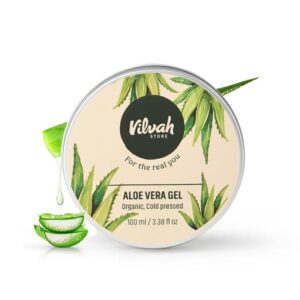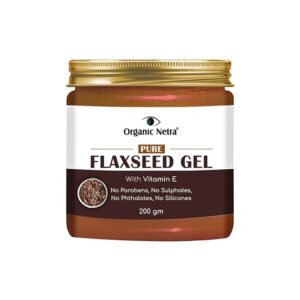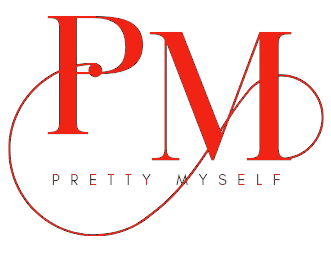Introduction to Hair Gel Side Effects
Page Contents
- Introduction to Hair Gel Side Effects
- What are the Common Ingredients in Hair Gels?
- Side Effects of Alcohol on The Scalp and Hair Fibers
- Side Effects of Preservatives like Parabens
- Fragrance Allergies and Sensitivity
- The Risk of Acrylates Causing Contact Dermatitis
- Can Hair Gel Cause Acne Breakouts?
- Choosing a Healthy Hair Gel without Harsh Ingredients
- Benefits of Aloe Vera Gel for Hair
- Flaxseed Gel Nourishes Hair from Roots to Ends
- Activated Charcoal Pulls Toxins from Hair and Scalp
- Tips for Minimizing Hair Gel Side Effects
- Use Hair Gel Sparingly
- Rinse Out Gel Thoroughly Before Bed
- Alternate Between Styling Products
- Seek Gel Alternatives If Issues Persist
- Frequently Asked Questions about Hair Gel
Hair gel is a popular styling product used by many people to achieve a desired hairstyle. However, as with many beauty products, hair gel does come with some potential side effects that users should be aware of. In this article, we will explore the various side effects of hair gel in depth.
What are the Common Ingredients in Hair Gels?
The most common ingredients found in most hair gels include alcohol, parabens, fragrance, and synthetic polymers. Alcohol like SD alcohol 40 serves as the base and helps hair gel dry quickly while providing a strong hold. Parabens like methylparaben and propylparaben act as preservatives. Fragrances give hair gels a pleasant smell. Synthetic polymers like VP/VA copolymer give hair gels their thick, viscous texture allowing them to coat the hair. These various ingredients can cause issues for some users.
Side Effects of Alcohol on The Scalp and Hair Fibers
One of the main concerns with hair gel side effects comes from the alcohol content. Alcohol is very drying and can cause irritation and flaking of the scalp with repeated use. The side effects of hair gel high in alcohol include redness, dryness, itching, and scalp acne. Alcohol can also dry out and weaken hair fibers over time, causing damage and breakage. Using lots of hair gel with a high alcohol content may counteract any other hair conditioning treatments as well.
Side Effects of Preservatives like Parabens
Another component of most conventional hair gels are preservatives like parabens. Parabens can be absorbed through the scalp and have shown links to hormonal imbalance and other health issues with exposure over time. Some people may develop allergic reactions to parabens as well, causing redness, swelling, and itchy skin. If you experience irritation of the scalp when using a hair gel, it may indicate an allergy to one of the preservative ingredients.
Fragrance Allergies and Sensitivity
In addition to carrier oils and preservatives, many mass-market hair gels contain synthetic fragrances added primarily for a pleasant scent. However, fragrances are a very common cause of allergic contact dermatitis. Symptoms like redness, scaling, itching, and bumps on the areas of skin exposed to the fragrance point to a fragrance allergy or sensitivity. The scalp absorbs products placed on the hair so consider fragrance-free options if you experience reactions.
The Risk of Acrylates Causing Contact Dermatitis
Some hair gels and styling products also rely on acrylate polymers like polyvinyl methacrylate to keep hair in place. Sensitivity to acrylates can develop over time with repeated exposure. Signs of allergic contact dermatitis include not only scalp itching and inflammation but also headaches, breathing issues, and eye irritation in some severe cases. Discontinue using any product containing acrylates if you experience unusual symptoms.
Can Hair Gel Cause Acne Breakouts?
Using hair products containing pore-clogging and irritating ingredients can also potentially worsen acne along the hairline, forehead, back of the neck, and other areas prone to breakouts. Some hair gels contain coconut oil or other comedogenic ingredients that can build up on the skin and hair follicles leading to pimples and blackheads. The side effects of hair gel may include clogged pores and increased breakouts in acne-prone individuals.
Choosing a Healthy Hair Gel without Harsh Ingredients
When shopping for a hair gel, check that the formula does not list concerning ingredients like parabens, phthalates, formaldehyde, or alcohol which can provoke unwanted hair gel side effects. Seek out clean, non-toxic hair styling gels without additives that may be irritating or harmful with daily use. The healthier alternative gel ingredients function just as well without associated side effects.
Benefits of Aloe Vera Gel for Hair

Aloe vera makes an exceptional natural hair gel alternative because it conditions hair and provides a soft, flexible hold. Pure aloe gel soothes the scalp, helps treat dandruff, and may improve hair growth over time. It also rinses cleanly without leaving heavy product residue. Using aloe vera gel avoids any side effects of harsh chemicals found in commercial hair styling gels. It works well for curly hair or straight styles.
Flaxseed Gel Nourishes Hair from Roots to Ends

Another option is flaxseed hair gel which contains mucilage with incredible hair-conditioning abilities to make hair shine. It fights frizz, locks in moisture, and prevents the side effects of hair gel drying out hair over time. Flaxseed gel also suits all hair types and allows hair to remain touchable, not stiff or crunchy. It also washes out easily with just water. The high vitamin E content nourishes the scalp as well.
Activated Charcoal Pulls Toxins from Hair and Scalp
For a deep cleansing approach, some natural hair gels utilize activated charcoal. When applied to hair, the charcoal has absorbent properties that pull out dirt, oil, product buildup and other pollutants from both hair strands and the scalp. Used occasionally, a charcoal hair gel leaves hair super clean and can draw out toxins. Use sparingly to avoid fully stripping the hair and scalp of natural oils though.
Tips for Minimizing Hair Gel Side Effects
When using any hair gel, a few simple guidelines will help minimize the chances of experiencing adverse side effects even with conventional styling products. We also recommend speaking to your dermatologist if symptoms concern you.
Use Hair Gel Sparingly
Using hair gel and other styling products sparingly limits exposure to potentially irritating ingredients. Concentrate application along the ends and avoid depositing product directly on the scalp whenever possible. Overapplying gel or other hair products increases the risks of absorbing chemicals through the scalp more significantly.
Rinse Out Gel Thoroughly Before Bed
Allowing gels, mousses, waxes, or sprays to remain on the scalp overnight unnecessarily prolongs contact between irritants and the skin. Thoroughly rinse out ALL hair products before bedtime. Consider switching to more natural overnight styling options as well like a silk hair wrap to train hair.
Alternate Between Styling Products
Rotating between a few different gels and other finishing products helps prevent sensitivity and reactions too. Varying haircare products avoids constantly using the same mix of ingredients day after day. Periodically changing up your styling products allows the skin and scalp time to recover in between exposure.
Seek Gel Alternatives If Issues Persist
Discontinue gel use for a period of time if you seem prone to adverse side effects like itching, scalp dryness and flaking, breakouts along the hairline, or allergy symptoms. Trying natural hair gel alternative ingredients often remedies issues for many users. However, schedule an appointment with your dermatologist if symptoms fail to improve or a rash develops.
Frequently Asked Questions about Hair Gel
Now that we have covered the potential side effects of using hair gels and products to style hair, here are answers to some frequently asked questions.
Does hair gel cause hair loss or thinning?
Using too much gel or failing to properly rinse it out may leave residue that can lead to some hair fall, but gels themselves do not directly cause medically concerning alopecia and thinning. However, opting for hair-healthy natural gels or those without harsh alcohols minimizes hair damage over time.
Is it bad to use hair gel everyday?
Using hair gel daily is fine as long as you thoroughly rinse it out before bedtime and occasionally give your hair and scalp a break by using alternative styling methods or no products at all. Give hair and skin a chance to breathe. Alternating between a few gels also reduces irritation.
Can hair gel cause headaches?
Ingredients like alcohol and certain acrylate polymers present in hair gel can provoke headaches, skin irritation, breathing issues, and eye watering in those sensitive. Discontinue use and consult a doctor if any severe symptoms develop that correlate with gel application.
Is hair gel safe to use while pregnant?
Check with your OBGYN, but most hair care products including clean gels without parabens or phthalates just require rinsing thoroughly after use. Tight hairstyles may cause some traction hair loss while expecting though.
Can you use hair gel on kids?
Pediatricians caution against using any unnecessary personal care products on young children. Toddler scalps remain fragile. However, clean, non-toxic natural gels gently tame flyaways for special events without issues after thoroughly washing out. Avoid alcohol-laden products.
What happens if you swallow hair gel?
Accidentally ingesting a small amount generally causes no significant issues. Larger quantities can prompt nausea, stomach pain, or diarrhea which require medical treatment. Call emergency services if vomiting, seizure, loss of consciousness or other serious symptoms occur after accidentally consuming hair
Hair gel remains a popular styling product for good reason – when used properly, hair gels can safely tame unruly locks and achieve picture-perfect styles. However, some chemical ingredients commonly added to conventional hair gels may cause unwanted reactions like allergies, scalp irritation, acne, and hair damage over time. Using too much gel or failing to wash it out thoroughly often exacerbates these side effects.
Seeking out more natural, clean hair gel alternatives without harsh alcohols, preservatives, fragrances, and acrylates reduces the chances of adverse effects developing with daily use. For those who prefer traditional hair gels, using sparingly, rinsing thoroughly before bed, and giving hair the occasional break from products allows the scalp and hair to recover. Pay attention to any symptoms like itching, odd headaches, or breakouts which may indicate a reaction as well. Discontinue use if irritation persists and consult a dermatologist to discover suitable alternative options for achieving fabulous hair.



